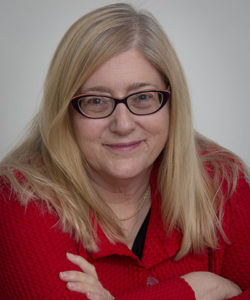Age is not Just a Number
One of the things that distresses me about ageism is the insidious ways it finds to undermine and disrespect the natural process of human ageing. Western culture, with its deeply embedded ageist thinking, conjures up platitudes and catchphrases that any slick advertising agency would be proud of having penned, almost always sugar-coated to appear benign and encouraging: a grandparent is ‘80 Years Young!’, or a mother turns 95, and below her photograph on social media we read that Age Is Just a Number!
While these phrases appear to mean well, they are actually dismissive and patronising. They drain those eighty or ninety-five lived years of all their courage, experiences, joys and hardships, and the life-lessons learned. They diminish and trivialise an achievement worthy of genuine celebration. Consider the use of that weasel word ‘just’ in the sentence Age is Just a Number: Synonyms for ‘just’ are words like ‘merely,’ ‘only,’ ‘barely,’ ‘hardly’ – all of them capable of squeezing a sense of ‘less than’ into the sentence relating to old age, to old people.
The English language is endlessly subtle and we should never underestimate its power to enhance or to undermine. This is why marginalised groups have fought so hard to reclaim words that have been used against them, and to insist on certain forms of address. And if this seems a bit left-field, consider the fact that old people in our Western cultures do mostly live on the margins. Personally, I’d like to reclaim the word ‘old’ and see it used openly. Not as the covert insult of its current usage but as a descriptive term with respectful overtones.
Perhaps the strangest aspect of the ageist mindset is that, unlike other forms of prejudice, those who perpetrate it will one day join the very group they dismiss and discriminate against. Because as others have noted, ageism is a form of prejudice against our future selves. The reason we do not take this knowledge on board is that our innate fear of death puts in place what has been theorised as ‘terror management’ behaviours: mechanisms that allow us – for most of the time – to block awareness of our own mortality, and by association, of our ageing.
Terror management may help us achieve peace of mind in the short term, but long term it isn’t helpful. Because at some point we’re going to be faced with the fact that we are living inside an ageing body. At various life stages, women receive strong messages from their bodies that things are changing, so you’d think they’d be more accepting.
However, the life-long pressure on women to conform to arbitrary standards of feminine beauty means that as they age they’re likely to suffer, and do suffer, twice as much as men, who traditionally have been promoted as growing more powerful with age. On men, greying hair is said to look ‘distinguished,’ whereas on women it is seen as a sign of beauty in ruins. Susan Sontag had the double standard of ageing figured out in the 1970s and wrote about it with authority and eloquence.
Age is not Just a Number
So, what should we say when someone we love reaches a grand age? What would be preferable to parroting the well-worn phrases that pay lip-service to an appreciation of old age but are actually undermining it? We could say ‘Eighty is a Glorious Number of Years to have Lived!’ We could say: ‘You must have seen so many changes in your time on earth; why don’t you tell us about some of them?’ We could say: ‘Ninety is a Fabulous Number and I’d love to Achieve it Myself!’ We could say: ‘Let’s celebrate the many years you’ve lived, all the many things you’ve seen and heard and know, all the many things you’ve survived.’
Consider the way we celebrate the passage of years at the youthful end of our lives – the 18th birthday cake ablaze with candles, the 21st a major milestone we’re so happy to reach that we decorate with flags and balloons and often more extravagant paraphernalia. Why not give a similar sense of joy and achievement to the passage of time at the upper end of life?
As we go forward into the second quarter of the 21st century, let us finally accept our own ageing and the ageing of others, and find within ourselves the compassion and respect that we, and they, deserve.
Carol is at [email protected], and her website is: www.carollefevre.com You can find her latest book, Bloomer, in hardback, ebook and audiobook, online.


